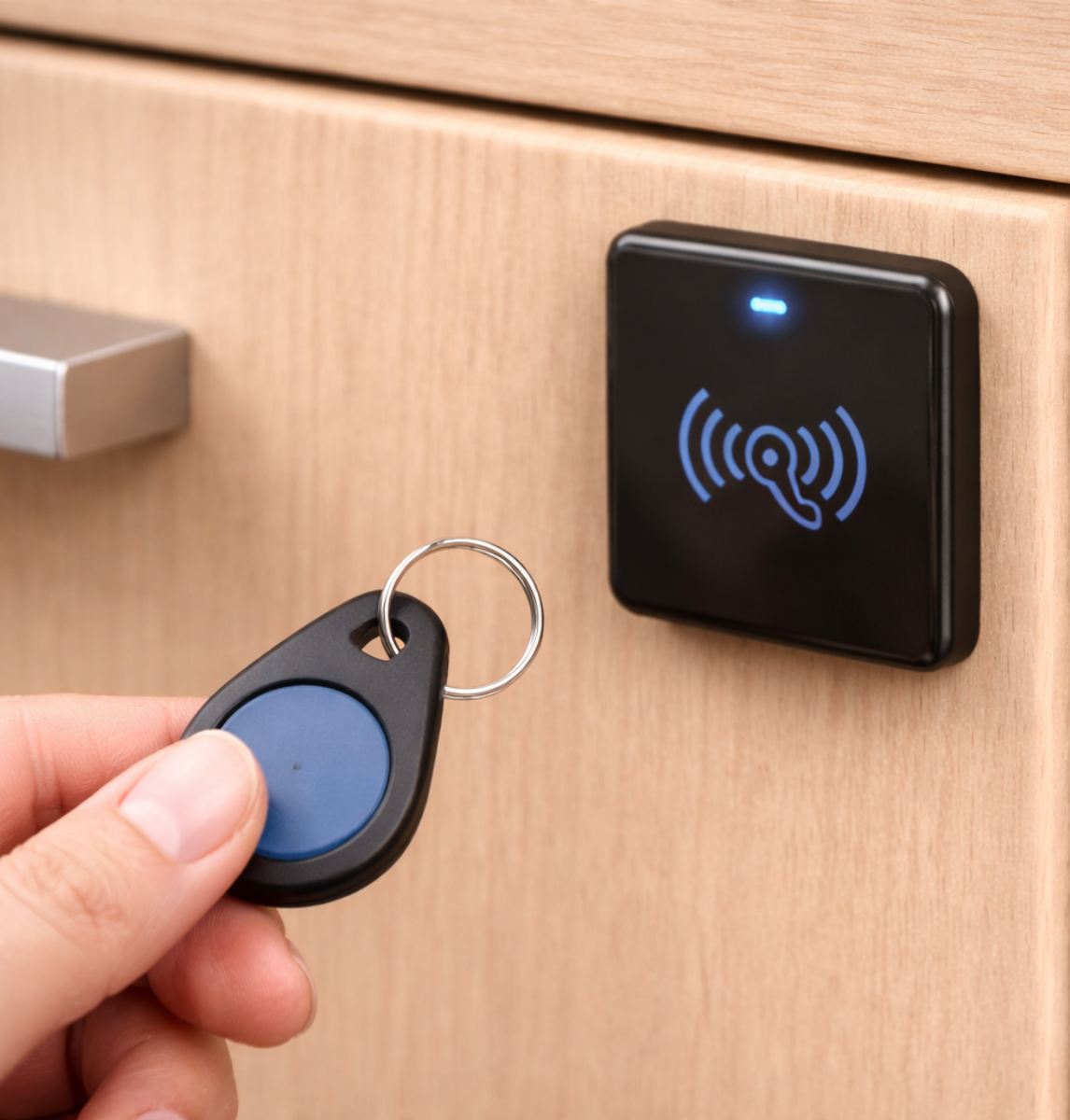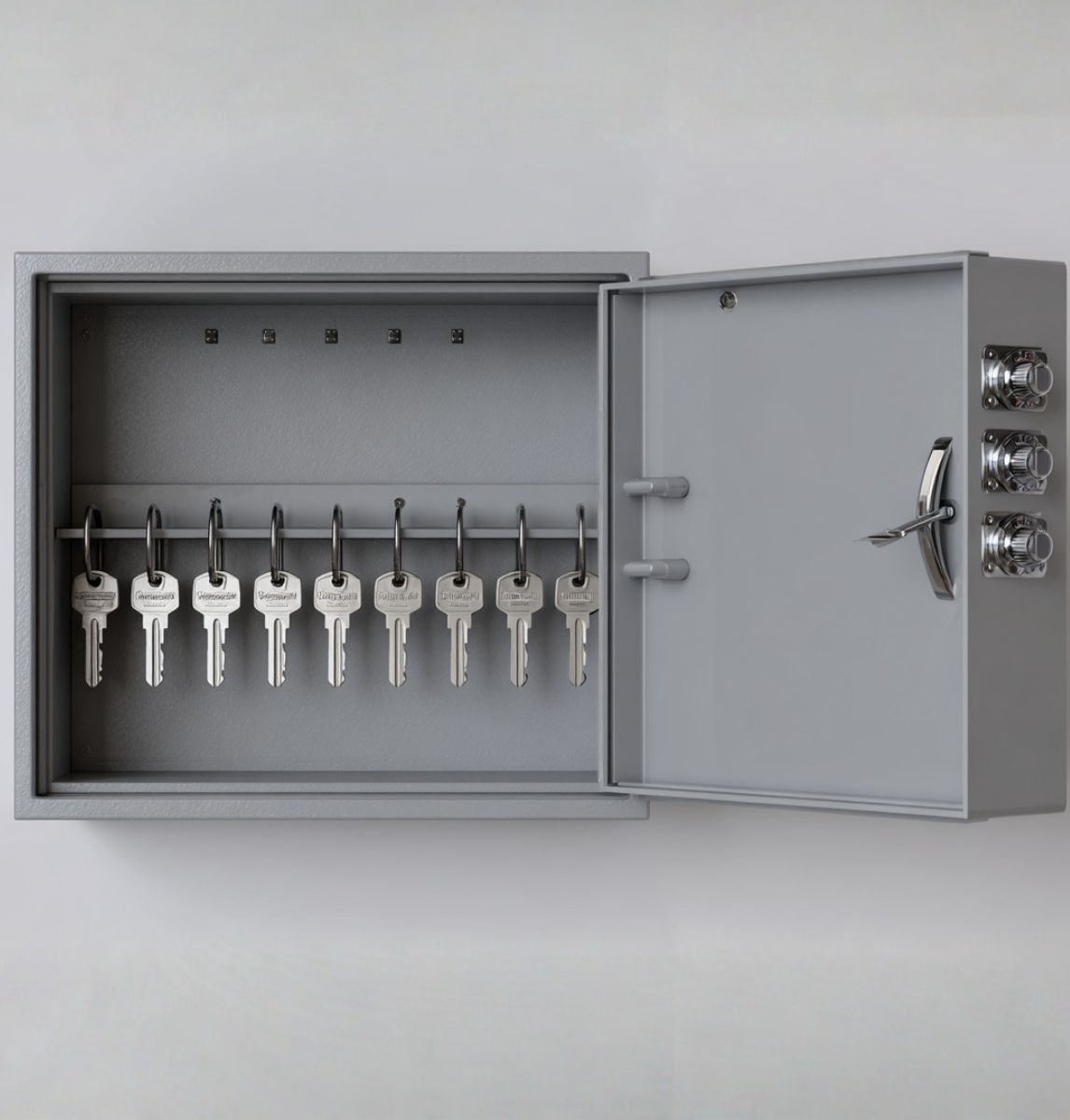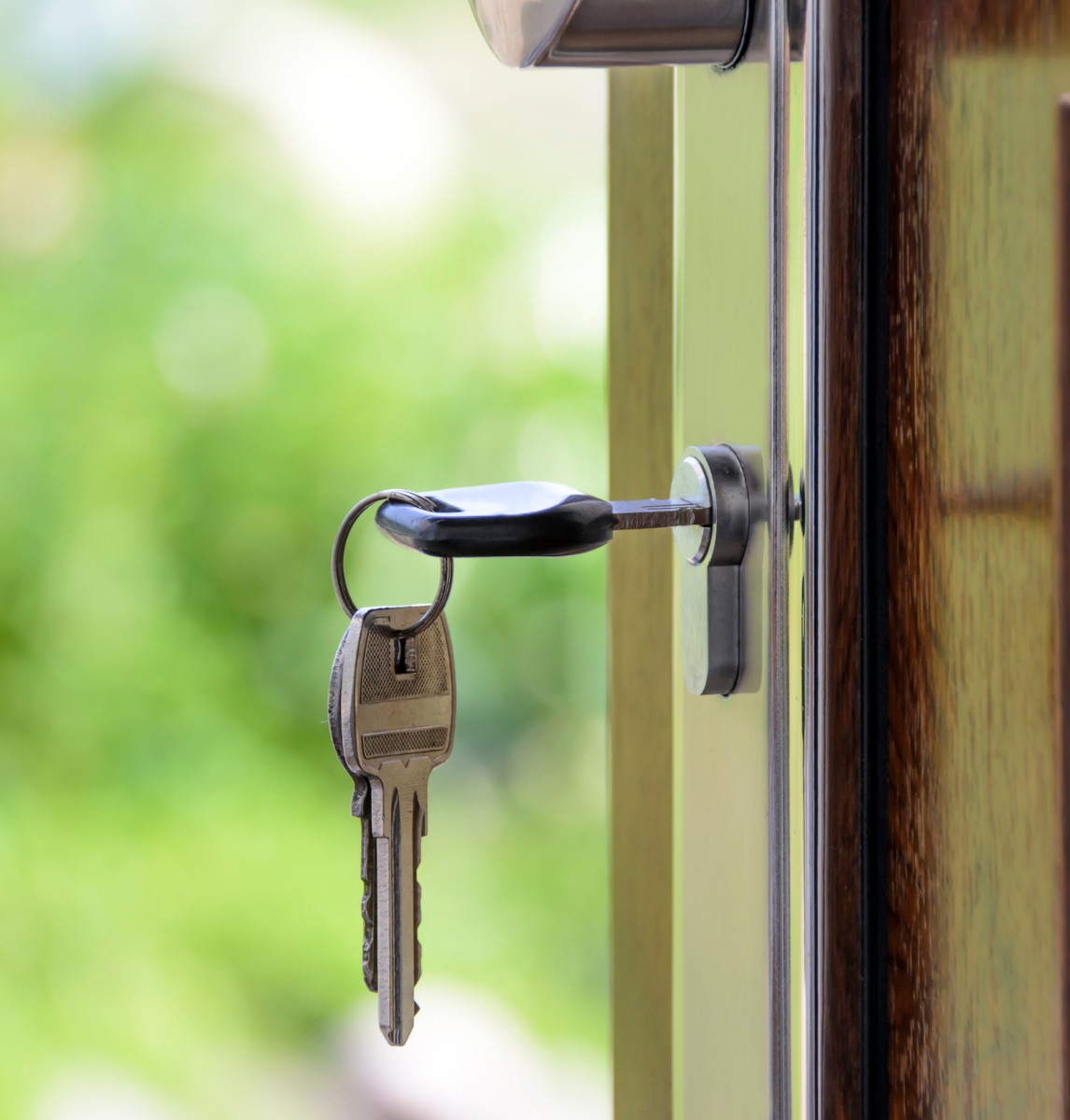Access Control: Overview of Methods, Systems, and Security
More security for your building: Why access control is essential

In many industries, access control is indispensable; in others, it serves as an additional layer of security.
It allows you to control access to buildings in a targeted way and prevent unauthorized individuals from entering. Whether through modern access control systems, turnstiles, or data protection–compliant solutions, effective access control protects people, assets, and sensitive data. In this article, you’ll learn what makes good access control and how to implement it reliably.
What Is Access Control?
Access control is the process of verifying and managing who is allowed to enter a building or premises to ensure security and data protection.
It encompasses the entire procedure of regulating entry to buildings, rooms, or specific areas, with the aim of granting access only to authorized individuals and denying it to those without permission. Depending on the application, various technologies and methods may be used — from mechanical locking systems to electronic access control systems and automated turnstiles.
In addition to physical security, data security also plays an important role in access control, especially when personal data, such as names or biometric identifiers, is processed. Well-planned access control not only protects people and property but also ensures compliance with legal data protection requirements.
Types of Access Control
Manual Access Control
Relies on security personnel to check access permissions or identification documents. This method offers a high degree of flexibility, as trained staff can respond individually to unforeseen situations. Access is determined by the security team’s judgment, allowing for situational assessments.
Technical Access Control
Is based on modern access control systems, often using PIN codes, electronic access cards, biometric scanners, or automated turnstiles. These systems enable a fast, standardized, and tamper-proof process. Technical solutions can also be seamlessly integrated with digital security and data protection measures to ensure the data security of the access control process.
While manual checks are particularly useful where flexibility is required, technical access control is gaining popularity. It offers a scalable and efficient solution to protect both commercial and private properties from unauthorized entry — around the clock.

Technical admission controls are therefore the first choice in many areas. However, the possible disadvantages that such a system entails can be quickly eliminated.
If you choose a high-quality and professional access system such as BlueID, you minimise the risk of technical malfunctions. In addition, updates are completely automatic, so you are always on the safe side. This means that you benefit from maximum security during a technical admission control.
Areas of application of admission controls
Admission controls are in demand in many different areas. Companies and office buildings in particular rely on this security measure. Strict control is recommended, especially in sensitive areas, so that confidential data is always well protected and employees are safe.
Equally popular is its use at transport hubs such as airports, train stations or subway stations. Admission control allows for a smooth flow of passengers and increases security where you need it – after all, there are many people gathered in one area, which is unfortunately a common target of crime.
The use of an admission control at events is also recommended. This allows you to monitor whether there are actually only invited guests in the building and that the maximum number of people allowed is not exceeded. This also contributes to the safety of the participants.
Public institutions also very often work with access controls. Sports facilities, museums, libraries – wherever you look, access is monitored. This protects the people who are in it. In addition, the buildings can be protected from vandalism and other damage.
How does an admission control work?
Depending on whether you opt for a manual or technical admission control, the process is somewhat different. In manual access control, a security employee checks the ID cards or access authorizations of people who want to enter a building or premises. Only those who are absolutely certain that they will be allowed to stay there are allowed in.
A wide variety of access media are used for a technical admission control . For example, people who want to enter a building have to enter a PIN code, use an RFID chip or have their iris scanned in order for the lock to open at all. Then access is possible.
Is there a high level of security through technical admission controls?
Technical admission controls can be seen again and again. But is this approach safe at all? In fact, this depends on the type of access system. If you want to protect your building, you should therefore only rely on high-quality and safe products.
Potential risks include false positives and other errors. Therefore, regular updates and maintenance are necessary. At BlueID, these are taken care of so that you always have a safe and reliable admission control.
And what about manipulation and circumvention attempts? Many fraudsters rely on so-called tailgating to gain unauthorized access to sensitive areas. This can be avoided through intensive training of employees and sensitization to the topic. Training of the users of an admission control is also important so that everyone understands the function and there is no incorrect operation.
In order for an admission control to develop its full benefits and offer many advantages, it must be well planned. Every building is different – and so the demands of building owners also differ greatly from each other. It is therefore important to look for a customizable product that can be tailored to your own needs. This gives you the solution that is perfect for your building.
When ordering an admission control, also pay attention to safety standards. Relevant DIN standards, encryption standards and high-quality workmanship should be the be-all and end-all. This way you get a technical admission control that keeps its promises.
Data Security in Access Control
Data security in access control ensures that personal information is protected and processed solely for its intended purpose.
In modern access control systems — particularly in electronic access control — personal data such as names, ID numbers, or biometric identifiers is often processed. As a result, data security in access control is subject to strict legal requirements, such as the General Data Protection Regulation (GDPR).
To ensure both data protection and security, all systems must be designed so that only authorized individuals can access stored data. This includes technical measures such as encryption, access restrictions, and secure server locations, as well as organizational measures such as training security personnel.
When selecting access control systems, it is also important to ensure that they are regularly updated and checked for security vulnerabilities. Clear documentation of who accessed which data and when further supports traceability and compliance. In this way, access control becomes not only a means of protecting buildings and people but also an effective tool for safeguarding sensitive data.
Conclusion
Admission controls increase the security of buildings and are used in a wide range of areas. Technical access controls in particular impress with a number of advantages. If you are also interested in a reliable and secure system, we at BlueID will help you find a tailor-made solution for your needs.





